
Anything can be used for speech therapy
by sidther
If you are trying to figure out what topic to use to practice speech with your child, look no farther than your surroundings! You can use anything to practice speech!
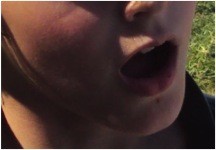 Getting a child with Autism to speak |
Full time professional therapy alone is not enough to help a child with autism speak
You must model speech constantly and practice with them as well!
If your child has autism or some type of language delay, then hopefully they are receiving speech therapy services already. If they are then there is still more that you can do to help them succeed and if they are on a waiting list then you can do a few simple things at home to encourage speech while you are waiting.
You do not need to be a speech therapist for these simple exercises. In fact, these are not even "exercises"! These simple speech techniques are just ways to encourage and demonstrate speech to a child who needs more practice! Speech modeling can be done anywhere, anytime and is hard to "overdose" on! It certainly can get annoying (especially to family and friends) so if you reach that point, you may need to calm down a bit.
PLEASE NOTE: I am not recommending anyone replace Professional Speech therapy. Professional Speech Therapy is the most effective way to help a child with autism or other delay effecting speech learn how to speak! These techniques should be used in addition to Speech Therapy. Consider these "homework" or "extra credit".
 people man child light path water 2443 |
What is Appropriate speech?
You will hear "appropriate" over and over in relation to every area of development
Many parents find themselves frustrated when they begin learning about developmental delays and therapists and doctors keep saying that the child is doing something "inappropriate".
Many parents associate the word inappropriate with things like doing something "naughty", or explicit and see these terms as insulting. Some parents express concern that the term implies that there is something fishy going on as far as parenting and cringe when they hear it.
It is not that at all! The word appropriate as defined by the dictionary:
ap-pro-pri-ate
adjective |əˈprōprē-it| suitable or proper in the circumstances
Developmentally speaking, the appropriateness of what a child is doing or says refers to whether they are doing something that is
A) correct or in context : If you point to the sky and ask "what color is the sky?" and the child answers "chicken" then it was an inappropriate response.
B) a normal reaction, idea, movement, selection when compared to same aged peers: If your child is 3 years old and is cheerily greeted and their reaction is to smack themselves in the face, that is inappropriate as most 3 year olds would either shy away and hide behind a parent or return the warm cheery greeting. Smacking themselves in the face is so vastly different from ANY of the usual reactions that it is called inappropriate.
C) in speech appropriate refers to not only whether something was correct or in context, but also to whether the child is using grammar correctly when compared to same aged peers: a 7 year old who is unable to use a complete sentence may say "I no go store"- this is inappropriate for their age as most 7 year olds will say "I do not want to go to the store"
How to model speech for your child depends upon their current level of speech
Start simple
If your child is only able to utter 2 words, then start with simple things. Use only one or two words when possible to help your child associate the individual words with the objects or actions.
Try to make it fun when possible- normally you would hand them a cup and say "cup" or "juice" or whatever is in the cup, but every now and then, do something crazy!
If your child appears bored, start bouncing or jumping and say "bounce, bounce, bounce, bounce" if that made them laugh, they may remember it better! If they are enjoying it, keep going, when they start to say it, let them get it out and them reward them in some way, be excited and cheer, let them know how proud you are that they said a word!
As you do your daily routine, speak. If you are sweeping the floor say "sweep" about every 15 to 30 seconds so they will associate the action with the word. When you hand them something, say what it is. When you put something in a drawer, say "it goes in" and then "it comes out" when you take something out.
When you model speech, all you are doing is verbalizing everything that you do and see.
As your child's speech improves, add to what you say.
"sweep floor" while sweeping. When ever the child drinks "Drink juice" you can add their name as well if they have not mastered that but you may need the help of a therapist to transition them from "Johnny drinks juice" to "I drink juice" as teaching I and you can be trickier than you would expect with kids who have autism- although if none is available it is possible with lots of practice!
Once the child is able to express their needs in one or two words, start practicing the 5 w's: who, what ,where, when and the hardest.... why. Here you try to take their speech beyond their physical needs so they can express more thoughts and desires.
Who, what and where are the easiest- with the words they have already mastered they have many of the "what's" down. Who should include themselves, family members, pets, therapists, whose names they may already know but next you will work on "he,she, girl, boy, man, woman"
The when and the why are very challenging, especially to children with autism so do not get hung up on it- if they are having difficulty with those two, don't give up BUT do not neglect other aspects of speech trying to perfect those two. Expand on everything else that they have mastered and just continue the when and why at whatever level they need.
Your speech modeling should grow with your child's development.
Keep challenging them!
Continue adding! Here is an example of how we progressed, each word took approximately 2 weeks for my son to master...
Ball
Big ball
Big Ball Bounces
The Big Ball Bounces
The Big Ball Bounces
then, when he finally started picking up past tense and future tense....
The Big ball bounced
The Big Ball Will Bounce
Future and Past Tense are challenging for kids with autism as well- it is a difficult concept to teach when the words needed to describe the fact that "it already happened" are among those words that are abstract and difficult for a child with autism to understand. The easiest way to demonstrate tenses is to pick a verb...
Let's use jump for this example. Stand in front of the child and say "jump, jump, jump" while you are jumping. When they start too,as they are jumping, say "jump" when they stop (which you may have to cue them to do) say "you jumpED" Be sure to really emphasize the ED. Have them start again and keep repeating. When they stop, ask them "what did you do?" The desired response is "I jumped"
 background-blue-branch-canopy-2837/ |
Have conversations with your child!
As many as you can- even if they are one sided!
When you try to converse with you child, even if they can not speak back it shows them that not only do you care enough to converse with them, but also demonstrates the art of conversation. Try to leave pauses during which you look at them (eye contact if you can but without forcing them if they can not- this is intended to be a laid back and comfortable way to demonstrate conversation with them). These pauses can be used as they progress for them to fill in.
"That was a nice dinner! There was juice and chicken nuggets and fries! Did you like it?"
child may not answer
"Yes, it was good! (as if agreeing) I think we should have another nice dinner tomorrow, what should we drink with it?"
parent may hold up child's drink to cue the word "juice/milk etc - child still may not answer, but with practice, they often pick it up!
Reward and Praise your child for the use of speech
The less verbal your child is, the bigger the reward should be for each attempt at an utterance!
Some people give stickers, some give matchbox cars it does not matter as long as your child really enjoys receiving it (so don't reward them with brussel sprouts)!
Aside from the little prize, you must be sure that the child feels as excited about each sound as you are! Cheer, clap, give them and exaggerated hug and kiss, tickle them what ever gets them excited.
The more pride your child feels each time they speak, the better their incentive to try again!
Catch them speaking on video if they like to have their picture taken and show them the video over and over- set it so that it is only one click on the desktop and show everyone who enters the home (while the child watches you show them).
To learn more about life with autism, please visit Sidther on Squidoo.
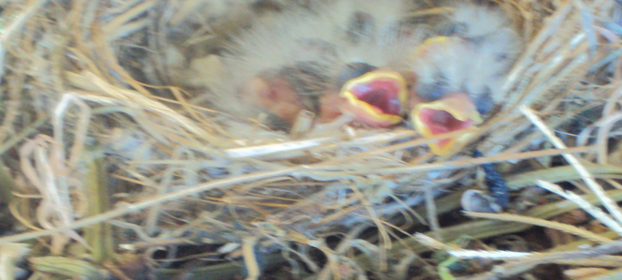 Our Baby Birds! We use these guys for speech practice! |
Speech Therapy the MOST effective way to help a child with autism learn to speak
If you do not have access, you can still help your child
 |
| ABA Therapy for Nonverbal Toddlers: Developing Communication Skills... Independently published Only $5.99 |
 |
| What Are They Doing?: A Fun Early Learning Book that Combines Anima... Molly J. McIntyre |
Silly Songs are Also Great For Speech!
10 Funniest Songs for Kids
This is a great article on Squidoo by Mamabush (mother of 5 children) with videos of funny childrens' songs . The songs are really fun and are a great way to encourage speech as well as other key areas of development for free!
You might also like
Importance of Fairy TalesIn modern times we too often forget the importance of reading fairy tales to ...
Raising Bilingual ChildrenWhen children start life with two languages, they have an advantage right fro...
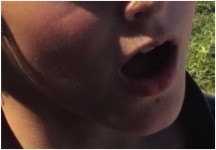


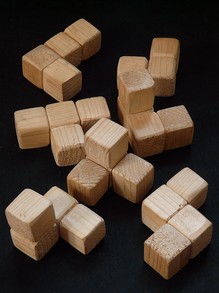
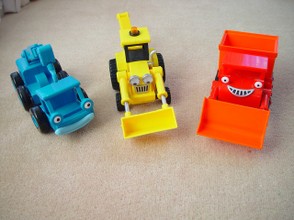
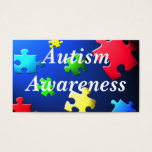
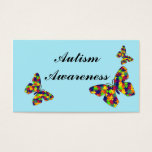
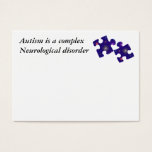

 Autism Behavior Cardson 07/29/2011
Autism Behavior Cardson 07/29/2011
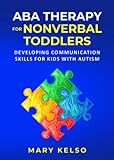
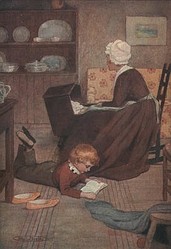
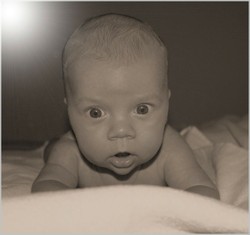
Do you have any great speech practice tips for kids with language delays?
Thanks for featuring my 10 Funniest Songs for Kids lens here...I never thought of something like this for speech therapy, but it really makes sense! It never hurts to use a little humor! :) Great article.
Wonderful article on speech therapy. Very interesting and informative, thank you for sharing
Great advice here Sidther, I'll remember this page in case I need to pass the info on to anyone.
You basically already said it, but 'keep it simple' would be my primary advice. Communicate on their level.
Very interesting article. I did not know autistic children had problems with verb tenses
ps...does singing words help any? I would think the added dimension of music to words would be useful.
Nice to see you branching out to Zazzle with your message! You go Girl!